Connectivity is crucial for European economic security and competitiveness, yet Europe is still lagging behind global players. A recent discussion in the European Parliament in Strasbourg explored how to bridge this gap by establishing a true European Digital Single Market. Organised by The Parliament magazine in partnership with the GSMA and Connect Europe, the event explored ways policymakers can support a competitive, innovative telecoms market that benefits citizens and businesses.
Mario Draghi’s recent report on the future of European competitiveness urged policy-makers to address this growing innovation gap with the US and China, warning that “competition for computing power and lack of investment in connectivity could soon translate into digital bottlenecks”. In particular, there is a pressing need to ensure that networks become greener, more resilient, and capable of supporting transformative technologies such as artificial intelligence (AI), softwarization, cloudification, and network-as-a-service (NaaS).
Industry experts joined MEPs Tsvetelina Penkova and Axel Voss to explore how the EU can remove these roadblocks to achieving a true Digital Single Market and ensure that the digital decade targets are met.
MEP Penkova opened the discussion reminding all guests that connectivity is essential for Europe’s digital economy and competitiveness, as a driver of growth, job creation, and data exchange across borders. Thanks to strong telecoms investment, she noted, some 89% of Europeans now have access to 5G, while 64% of households have access to fibre broadband. At the same time, telecom prices for consumers have “consistently declined”, something she says is “not the case for many other industries or geographic locations”.
We must ensure Europe is not just a participant in the global digital landscape, but a leader that sets the pace for others to follow
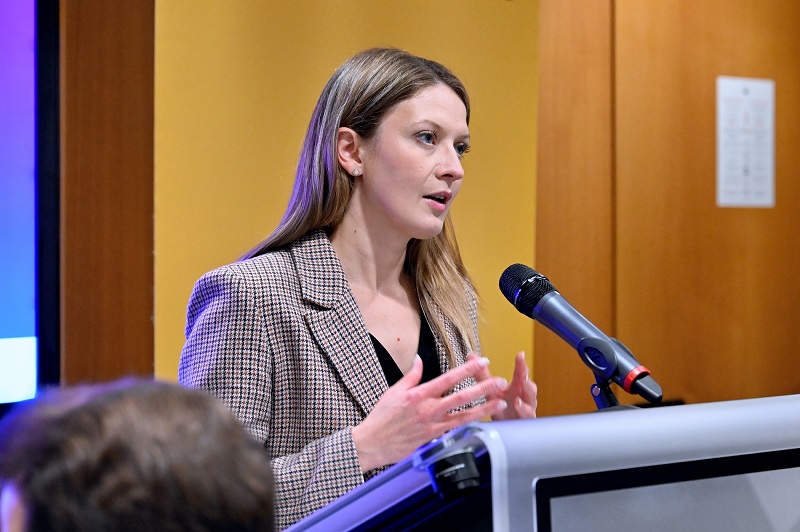 MEP Tsvetelina Penkova
MEP Tsvetelina Penkova
But the sector faces a series of challenges, she said, including “heavy regulations, and increasing competition from global tech giants who face much fewer regulatory obligations”, which she said undermine telecoms providers financial sustainability and “puts at risk consumer interest and consumer rights”. She endorsed Enrico Letta’s recommendation for enhanced regulatory co-ordination among member states, saying that is “the only way we can achieve international competitiveness” and ensure Europe is “not just a participant in the global digital landscape, but a leader that sets the pace for others to follow”.
Alessandro Gropelli, Director General-designate of Connect Europe, agreed that the regulatory decisions made in the coming years will define Europe’s global role. He said a proposed Digital Networks Act will offer a critical opportunity to overhaul the telecoms and connectivity ecosystem, and urged policy-makers to “be bold” and show political leadership in the face of necessary “trade-offs”. “In ten, 15 years, are we going to be a continent of cheap things, cheap connectivity? Or are we going to be the continent of investment in 5G standalone, in fibre, in gigabit connectivity?” he asked
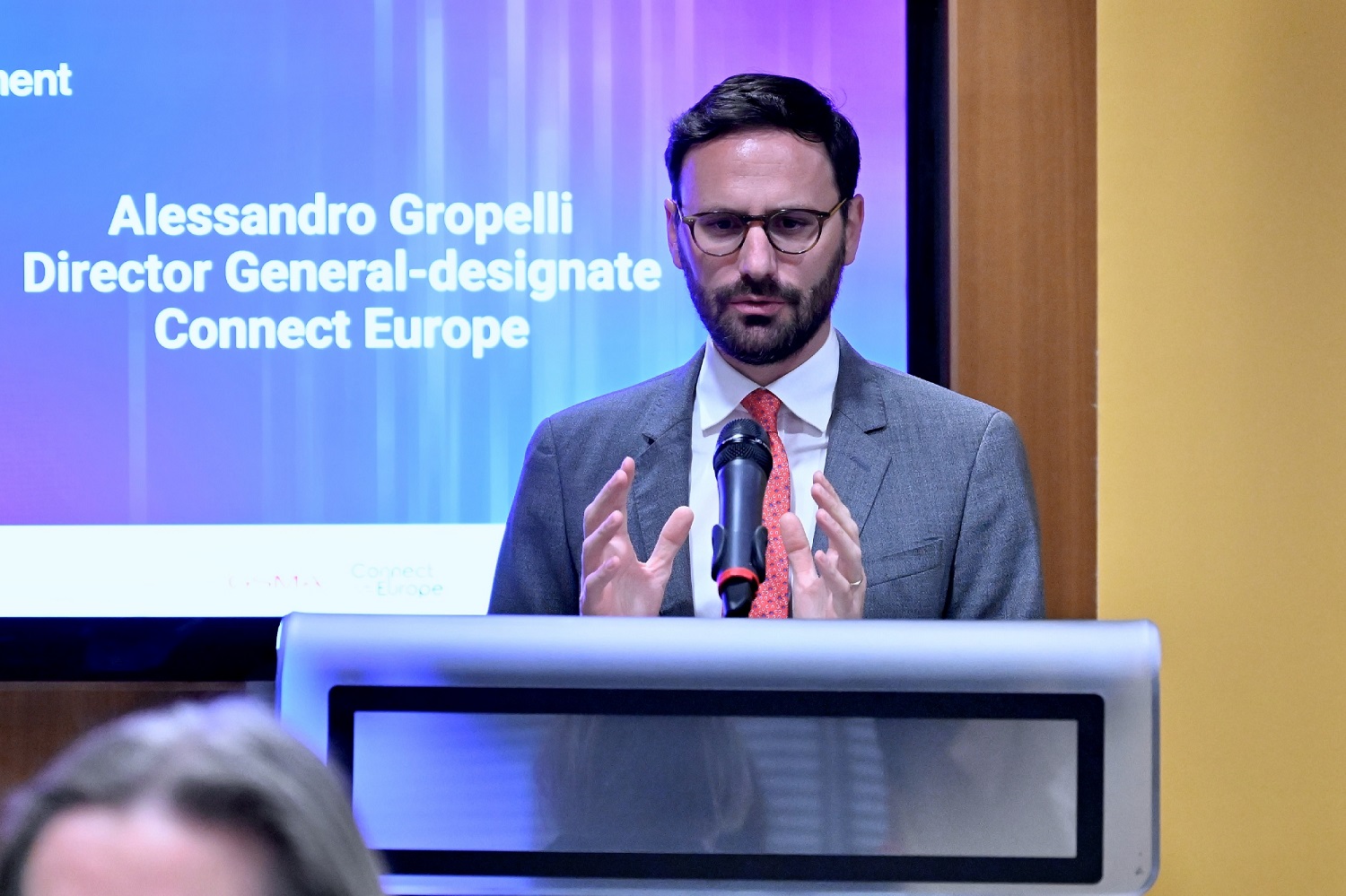 Alessandro Gropelli, Director General-designate of Connect Europe
Alessandro Gropelli, Director General-designate of Connect Europe
Another major trade-off relates to the relationship with Big Tech and the level playing field. “Are we going to create some space for our European connectivity ecosystem to innovate, or are we just going to buy innovation from Big Tech operators and regulate it afterwards?” And the final trade-off relates to consolidation. “Are we going to be happy with small, weak national players who get bought out by non-European players, or are we going to federate a bit and create a more rational structure of the market that leverages these 450 million people that we have in Europe?”
To meet these challenges, he said, European policy-makers must address three priorities: (1) creating a unified telecoms market for pan-European providers, (2) modernising telecoms regulations, and (3) ensuring fair competition with Big Tech to support smaller European telecoms players.
Laszlo Toth, Head of Europe & CIS for the GSMA, agreed that Europe risks falling behind if infrastructure does not match the expanding needs of new transformative technologies, and echoed the calls for an “urgent revision of outdated regulatory rules”. He pointed out the disparity in subscriber bases, with European telecoms operators averaging 5 million customers compared to 450 million operators in China and 110 million in the U.S.
To tackle these challenges, the GSMA has proposed a roadmap for expanding spectrum access and suggested new financial mechanisms to accelerate next-generation network rollouts.
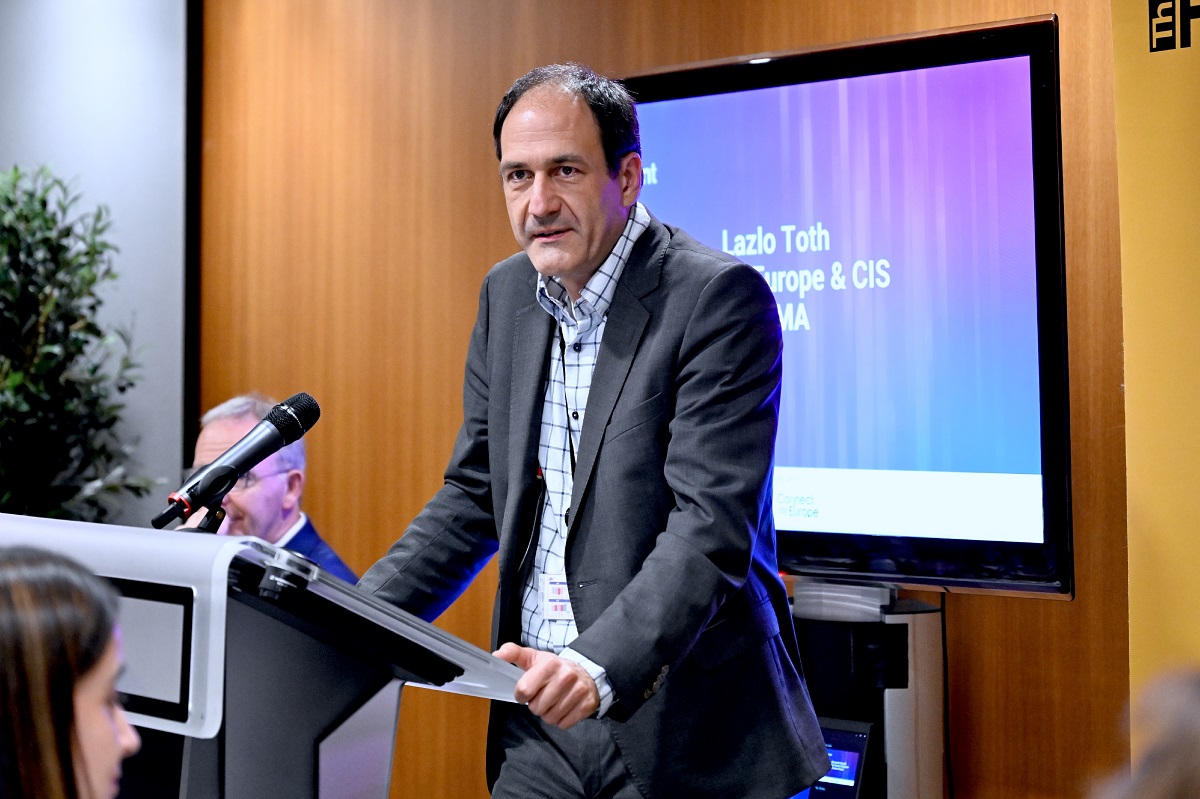 Laszlo Toth, Head of Europe & CIS for the GSMA
Laszlo Toth, Head of Europe & CIS for the GSMA
Jakob Greiner, Vice President of European Affairs, Deutsche Telekom, echoed these sentiments, noting that European telecoms operators have lost 41% of their market capitalisation since 2015, and that many of them can no longer earn back their costs of capital. He also stressed that 65% of Deutsche Telekom’s revenue comes from its presence in the US, and lists this as a reason why the company is still among the top 10 telecommunications operators in the world. “If these numbers tell you one thing, then that we, as a European sector, are not competitive,” added Greiner. He proposed that to overcome this and other telecoms problems, there have to be new reforms and a lot of investment, making Europe “a champion in connectivity.”
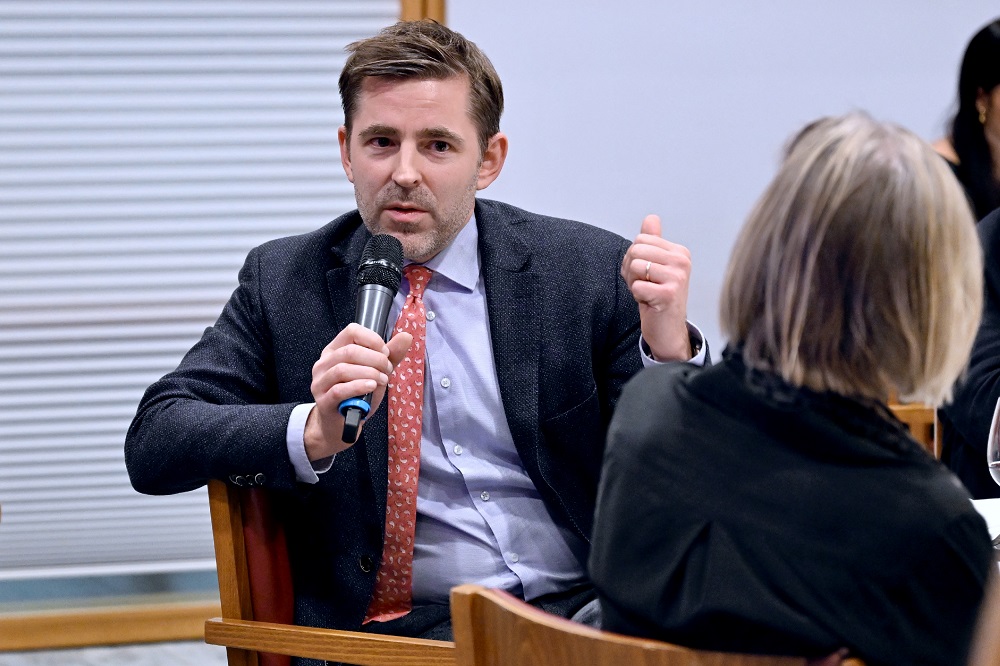 Jakob Greiner, Vice President of European Affairs, Deutsche Telekom
Jakob Greiner, Vice President of European Affairs, Deutsche Telekom
MEP Axel Voss said it was now crucial for industry, policy-makers and stakeholders to join forces to set priorities and to be more “disruptive” in coming forward. “In this digital decade since 2020 there have been wonderful ideas, but I haven’t seen their execution, and bringing one legislation after the other is not a strategy for the future.”
He expressed concern that, with responsibility for digital issues spread across various commissioners and committees, time and resource was being wasted on determining responsibilities rather than enacting policy, and called for a “more concentrated” approach, with one DG and one commission responsible for the digital economy in Europe.
MEP Penkova agreed, and urged the EU institutions, the member states and the private sector to work together hand in hand, concluding: “Only by sharing responsibility can we create an interconnected and competitive Europe.”
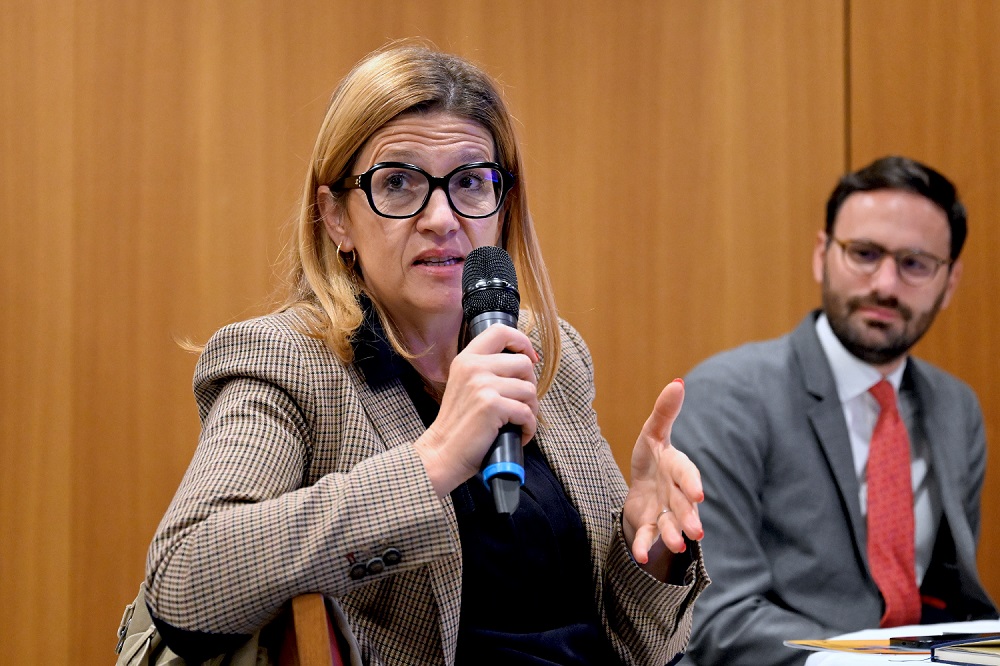 Stéphanie Yon-Courtin MEP
Stéphanie Yon-Courtin MEP
Sign up to The Parliament's weekly newsletter
Every Friday our editorial team goes behind the headlines to offer insight and analysis on the key stories driving the EU agenda. Subscribe for free here.